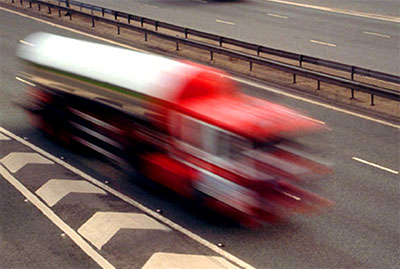Martin Robben is a Dutch timber merchant who now finds it hard to believe that speed cameras in the Netherlands don’t tell fibs.
Newspaper De Telegraaf reports that during one day, August 25, Robben’s truck was pinged for speeding on 45 occasions, though it was parked on the roadside in the village of Oldeberkoop.The potential fines amounted to thousands of Euros.“Sometimes there were only three seconds between the tickets,” Robben told the Dutch paper. “That’s impossible. Nobody can be flashed dozens of times in an afternoon.”Like the situation in Australia, the usual procedure in Europe is for the traffic authorities to mail off the bluey with no supporting photographic evidence of the so-called offence. The motorist charged needs to pay for a copy of the camera pic showing the misdemeanour.The Robben case hits the spot because The Netherlands is home to Gatsometer, the best-known and foremost manufacturer of speed cameras globally.This is far from being the first speed camera to err in finding stationary vehicles have been speeding.Other cases have been documented in France, the UK and Australia. In Wollongong, NSW in 2005, a magistrate acquitted an elderly motoring couple that received tickets from a notoriously unreliable speed camera. It had previously issued speeding tickets to a milk truck driver for driving at an unrealistic speed, and to a school crossing lollypop monitor whose vehicle was parked adjacent to the camera.Similarly there have been claims that cameras on Sydney’s Spit Hill have given false readings at times.Typically, the NSW Roads and Traffic Authority refused to concede that the accuracy of the cameras are in doubt.To his credit, the magistrate said he had grave concerns over the RTA’s refusal to do rectify the mistakes made by cameras until forced by the court to correct them.





